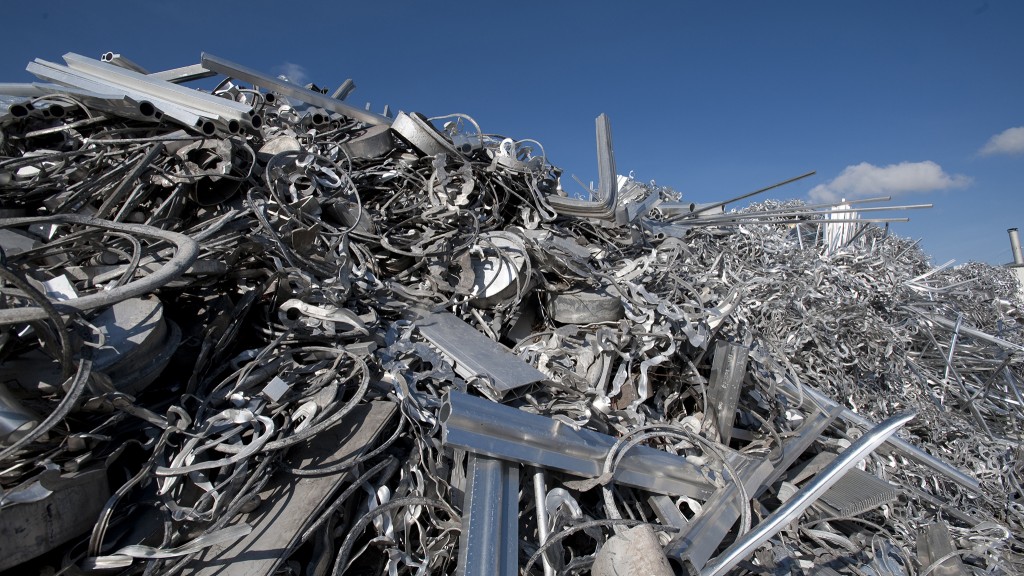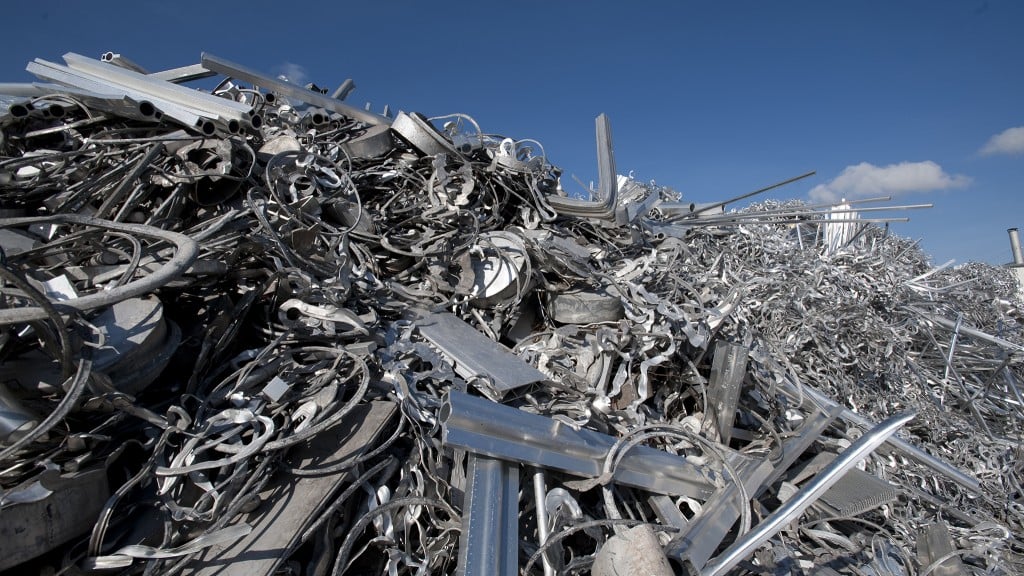
Steel Dynamics, Inc. will construct and operate a 650,000-tonne low-carbon, recycled aluminum flat rolled mill, with two supporting satellite recycled aluminum slab centres. The investment is estimated to be $2.2 billion for the three facilities, and commercial production is planned to begin in the first quarter of 2025. The aluminum flat-rolled mill will utilize a significant amount of aluminum scrap, and as such is also a complementary extension of the company's metals recycling platform. The company estimates the project will generate between $650 million and $700 million of annual EBITDA on a through-cycle basis. The project will be funded with available cash and cash flow from operations, and the company plans to maintain its policy of strong shareholder distributions and investment grade credit ratings.
The North American flat-rolled aluminum industry has a substantial and growing supply deficit estimated at over 2.0 million tonnes, based largely on increasing demand from the automotive and sustainable beverage can industries. The lack of aluminum flat rolled availability has impacted automotive producers' ability to secure supply. The supply deficit is currently being addressed through imports of higher-cost aluminum flat-rolled products, which exceeded 25 percent of North American consumption in 2021.
Steel Dynamics' aluminum flat-rolled mill project
The planned $1.9 billion aluminum flat-rolled mill will be located in the Southeastern United States, with an annual production capacity of 650,000 tonnes of finished products, serving the sustainable beverage packaging, automotive, and common alloy industrial sectors. The product offering will be supported by various value-added finishing lines, including CASH (continuous annealing solutions heat treating) lines, continuous coating, and various slitting and packaging operations. The rolling mill is currently expected to begin operations in the first quarter 2025. The company's focus on decarbonization will also be applied to this aluminum operation, including plans to use a significant amount of pre- and post-consumer aluminum scrap in its production process, supported by the company's metals recycling platform. The company will own over 94 percent of the rolling mill facility through a joint venture arrangement with Unity Aluminum, Inc.
At full capacity, the aluminum rolling mill will require approximately 900,000 tonnes of annual aluminum slab supply. The rolling mill is expected to have the capacity to supply approximately 50 percent of its recycled aluminum slab requirements on site, with the remaining amount to be provided by the construction and operation of two additional satellite recycled aluminum slab centres, one to be located in the Southwestern United States and the other in Northcentral Mexico. The satellite slab centres will benefit from abundant regional aluminum scrap supply and cost-effective operations. The two facilities are expected to cost approximately $350 million in aggregate, with the Mexico facility expected to begin operations in 2024 and the U.S. facility by the end of 2025. The company will own 100 percent of the satellite facilities.
Steel Dynamics believes this strategic growth investment is differentiated and supported by the following key advantages:
The culture at Steel Dynamics
- This investment will benefit from Steel Dynamics' commitment to the safety, health, welfare, and development of its people.
- Steel Dynamics' culture is demonstrated through a low-cost operating framework and its entrepreneurial performance-based incentive systems.
A market in need of alternatives
- A new aluminum flat-rolled mill has not been constructed in North America for over 40 years. Steel Dynamics plans to bring the "mini-mill" culture and related operating efficiency to the flat-rolled aluminum industry.
Successful organic growth track record
- Steel Dynamics' teams and its executive leadership have extensive experience constructing and operating large capital-intensive operations, including flat-rolled steel mills and downstream value-added finishing lines.
- Steel Dynamics recently successfully completed the construction of a new $2.0 billion flat-rolled steel mill with two high-quality finishing lines in Sinton, Texas, within the planned budget.
Customer supply-chain solutions
- This investment allows Steel Dynamics to grow with its customers by supporting their sustainable metals needs. A significant number of Steel Dynamics' existing carbon steel customers also consume or process aluminum flat rolled products for automotive, appliance, construction, and other applications.
- This investment provides these customers with a new, high-quality, domestic, low-carbon aluminum supply-chain, while also providing Steel Dynamics with a hedge against carbon steel material substitution.
- This investment diversifies Steel Dynamics' end-market exposure by serving the growing North American sustainable beverage can industry with its counter-cyclical characteristics.
- Similar to Steel Dynamics' vision at its Sinton, Texas, steel mill, the company plans to invite customers to locate facilities onsite with the rolling mill to further enhance customer cost efficiencies, providing a "closed loop" aluminum coil-to-scrap sourcing opportunity.
A sustainability focus
- Steel Dynamics' metals recycling platform, OmniSource, has a lot of processing capabilities and ready to access new and existing aluminum scrap generators and suppliers.
- Recycled aluminum scrap will be the primary raw material for the aluminum rolling mill and the recycled aluminum slab centres. The company's metals recycling platform is expected to supply 100 percent of the scrap aluminum for these operations.
- Consistent with existing Steel Dynamics' steel mills, this new aluminum mill is planned to provide an energy-efficient, lower environmental impact product alternative to average global aluminum flat rolled production facilities.
The financial strength of the project
- Steel Dynamics has more than doubled its free cash flow generation capability since the acquisition of the Columbus Flat Roll Steel Division with an annual average adjusted free cash flow of $1.5 billion from 2017 to 2021.
- The company will fund this project through available cash and cash flow from operations while retaining its strong shareholder distributions and investment-grade credit profile.
During Sinton's construction from 2019 through 2021, the company improved its credit profile, while funding the $2.0 billion steel mill through free cash flow, and increasing its cash dividend by 39 percent and purchasing $1.5 billion, or 14 percent, of its common stock.


